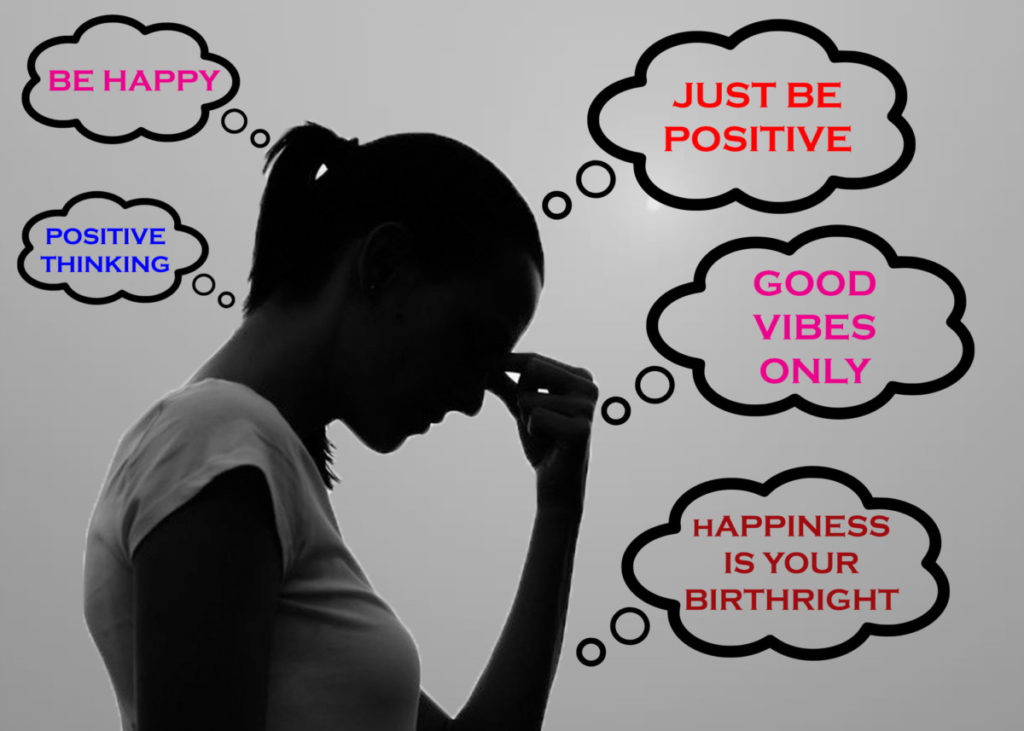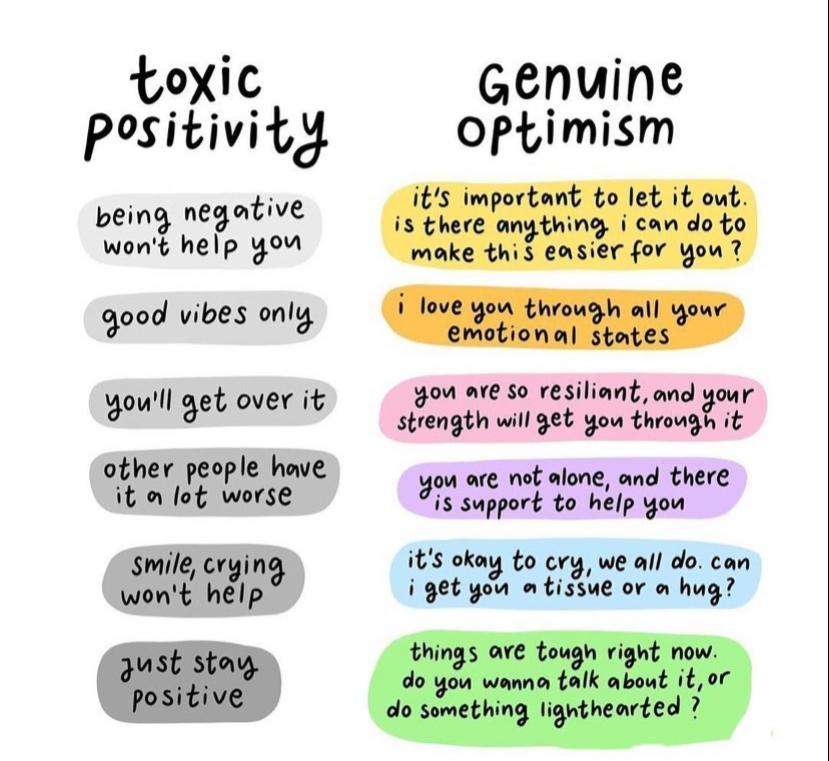“Good vibes only” is a motto that we’ve been introduced to years ago, one which many have been trying to live by, because who wouldn’t want to live a life where only smiles and pink butterflies are allowed? Though this glamorous picture the slogan implies is lovely, the struggles and pain that come along the process of trying to live up to it is rather shady. There’s a fine line between trying to find pleasure in the simplest things, and forcing yourself to do so while leaving the bleeding parts of your heart neither treated nor validated. Usually, this eventually backfires and triggers toxic positivity, which comes with a baggage of unpleasant emotional struggles we were trying to fight away in the first place.
Let’s put a ground rule before carrying on, no good can ever come from the ‘excess’ of anything, and while we surely foster having an optimistic vision and a sunny disposition on life, we on the contrary, warn against the ‘overdose’ that leads one to pushing any other emotion that isn’t exactly on the same line of happiness aside, in favor of a more cheerful, often falsely positive facade. Because if you are to actually be a positive person, you should know how to allow yourself to experience the whole spectrum of emotions, standing your grounds against intrusive thoughts instead of denying their existence.
So, let’s delve into the matter to get a clear understanding of the matter.
What is toxic positivity?
According to psychologists, toxic positivity is the overgeneralization of a happy optimistic state that results in the denial, minimization, and invalidation of the authentic human experience. It often comes from a place where people believe the importance of having a positive outlook on life on one’s mental state. But let’s face the truth, unpleasant and painful experiences are inevitable, and despite the fact that how people deal with them is what makes a difference, choosing to deny their existence and covering them under the rug is certainly not the correct way to reach for happiness.

Well intentioned statements we often hear from our families and friends like “just stay positive” and “get over it” that are said out of sympathy and wanting to get others out of the bush, can unfortunately lead people to shut down and suppress their negative feelings because they feel that otherwise they’ll be perceived and looked upon as ‘extra’ or ‘dramatic’ individuals who failed to take people’s advice. Glamorous quotes like “happiness is a choice” come into play in these situations, being misplaced in certain contexts to imply that those expressing grief are “choosing sadness” and thus the emotional havoc they’re experiencing is simply their fault, which is absolute hogwash!
Signs of toxic positivity
:max_bytes(150000):strip_icc():format(webp)/what-is-toxic-positivity-5093958-regular-FINAL-48f269395397441384a45a305a7f168f.png)
Signs include people experiencing incredibly challenging situations escaping from their thoughts rather than facing and communicating with them. It also includes feeling of shame and disgust of oneself after opening up and discussing their disappointments with people. Or having a harsh inner dialogue where you accuse yourself and feel guilty for having such feelings from the beginning yourself, giving it unfair labels like being extra and pathetic. It can also include someone judging others who happen to open a discussion where they tackle their own disappointments.
Why it’s harmful
It’s toxic because it strips the right for people to simply allow themselves to feel whatever it is they’re dealing with, making their emotions ‘invalid’. Also receiving statements we previously mentioned that include mere advice of staying positive come off as dismissive which makes the person who is suffering reluctant to communicate his feelings, therefore triggering a sense of loneliness and additional sadness. Having such a mindset will also provoke feelings of guilt and shame in case you snap and decide to talk about your feelings, because to you, feeling sad indicates weakness. It also gives the sense of undermining and trivializing people’s experiences with simple ‘feel good’ statements.

We have to differentiate between toxic positivity and genuine positivity. Toxic positivity deprives people from having a safe place to communicate their feelings, resulting in further unresolved psychological issues piling up within. Validating emotions is as crucial as being optimistic and radiant. Because in order to reach a phase where you become a healthy minded person, you first need to be able to face your own demons, validate your emotions, and know how to gently deal with them.



